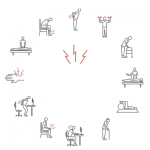Milestones are at the core of the current system designed to evaluate medical residency and fellowship programs and their participants. But are all milestones meaningful for medical education? This idea was at the center of a debate during the 2017 ACR/ARHP Annual Meeting, during which speakers explored the advantages and drawbacks of using training milestones for rheumatology fellowships…









